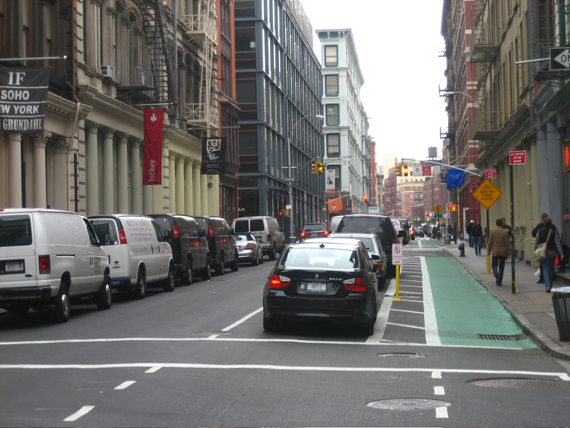In recent years, some of the country's largest mixed-use real estate developments involved disposition of government-owned land directly to developers. For example, Atlantic Yards in Brooklyn and DC's City Center and Marriott Marquis came about when municipal governments … [Read more...]
Engineering in the dark
The similarities of urban design across American neighborhoods is no coincidence, but neither is it the result of city planners' uniform adherence to best practices. Infrastructure is often built based on shockingly little information about the demands of its users. And while poorly reasoned … [Read more...]
The History of Progressive Housing Policy
Maya Dukmasova recently published at Slate an interesting piece about the potential for current trends in affordable housing policy to tear apart the social capital of low-income people. She makes the Ostromian point that policymakers' lack of understanding of the informal institutions that govern … [Read more...]
Free parking isn’t free
Last week I wrote a piece for City Journal on how smart parking could allow New York City to implement variable pricing. Street parking sensors allow prices to change to maintain an empty spot on each block, as parking expert Donald Shoup recommends. By eliminating the incentive to drive around … [Read more...]
Urban Renewal in Philadelphia
The Philadelphia Housing Authority will seize nearly 1,300 properties for a major urban renewal project in the city's Sharswood neighborhood. The plan includes the demolition of two of the neighborhood's three high-rise public housing buildings -- the Blumberg towers -- that will be replaced with a … [Read more...]
The benefits of the market in both infrastructure and urbanism
Alain Bertaud, a senior research scholar at the Urbanization Project, has had a long career in urban planning, and many of his writings have a market urbanist flavor. He is currently working a book called Order Without Design, and last year he published an excerpt from that book called "The … [Read more...]
The Status of Smart Growth Regulation
Debates over land use policy often devolve into opponents arguing over how to interpret the same set of facts. For example, "market suburbanists" argue that because apartments in walkable neighborhoods tend to cost more per square foot than suburban single family homes, high densities make coastal … [Read more...]
The importance of driverless trains
As Honolulu is making progress on its driverless elevated rail system under construction, Washington, DC is finally beginning to return to computer operation on its red line after a 2009 crash brought an end to reliance on the computerized system. While the move in DC will facilitate smoother … [Read more...]
- « Previous Page
- 1
- …
- 3
- 4
- 5
- 6
- 7
- …
- 20
- Next Page »






